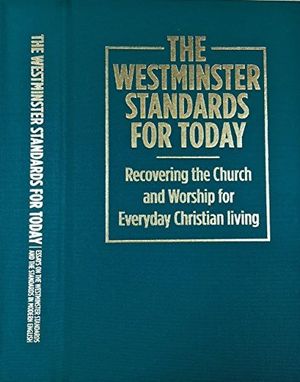It is probably true to say that the Westminster Assembly’s Confession of Faith and Larger and Shorter Catechisms have become the best known but least read subordinate standards in Presbyterian churches the world over. Indeed, late 19th and early 20th century modifications of subscription to these standards have impacted on depth and clarity in understanding of the faith in these churches, leading to widespread doctrinal confusion and declension.
This volume has been produced to provide an edition of the main documents in modern English. It is a capable and laudable piece of work. The translation has been tastefully done to retain the structure and cadence of the original.
For the greater part the changes are light, with modern terms substituted for archaic ones. In some cases, alternatives are placed in brackets alongside the original. Some changes are perfectly reasonable, such as the replacement of ‘Holy Ghost’ by ‘Holy Spirit’. Notably ‘thereof’ and ‘whereof’ are retained, though ‘whatsoever’ might have been replaced by ‘whatever’.
It is also happily noticeable that the original texts of the Standards are used, rather than subsequent amended versions. It follows the best text of the Confession as produced by S. W. Carruthers in 1946.
A number of introductory essays focus largely on worship and church government. The essays are generally excellent. For this reviewer, however, comments on singing on page 77 are debatable. In an attempt to deflect from the implication that the Standards only support biblical Psalms in worship, the writer suggests that such terms do not exclude hymnody, by which he means non-canonical materials of praise. In our view this evades the clear requirement in the Standards for divine warrant for such elements of public worship.
The essays in our view would have been better to have been produced as a companion volume with both in paperback, rather than the one quite expensive hardback edition. Alternatively the essays might have been placed after the texts of the Standards rather than preceding them.
However, these are small points. Notwithstanding some reservations, we wish this venture well in rekindling interest in the Westminster Standards and their teaching, something much needed in the church today.
John W. Keddie
Kirkhill, Inverness-shire








